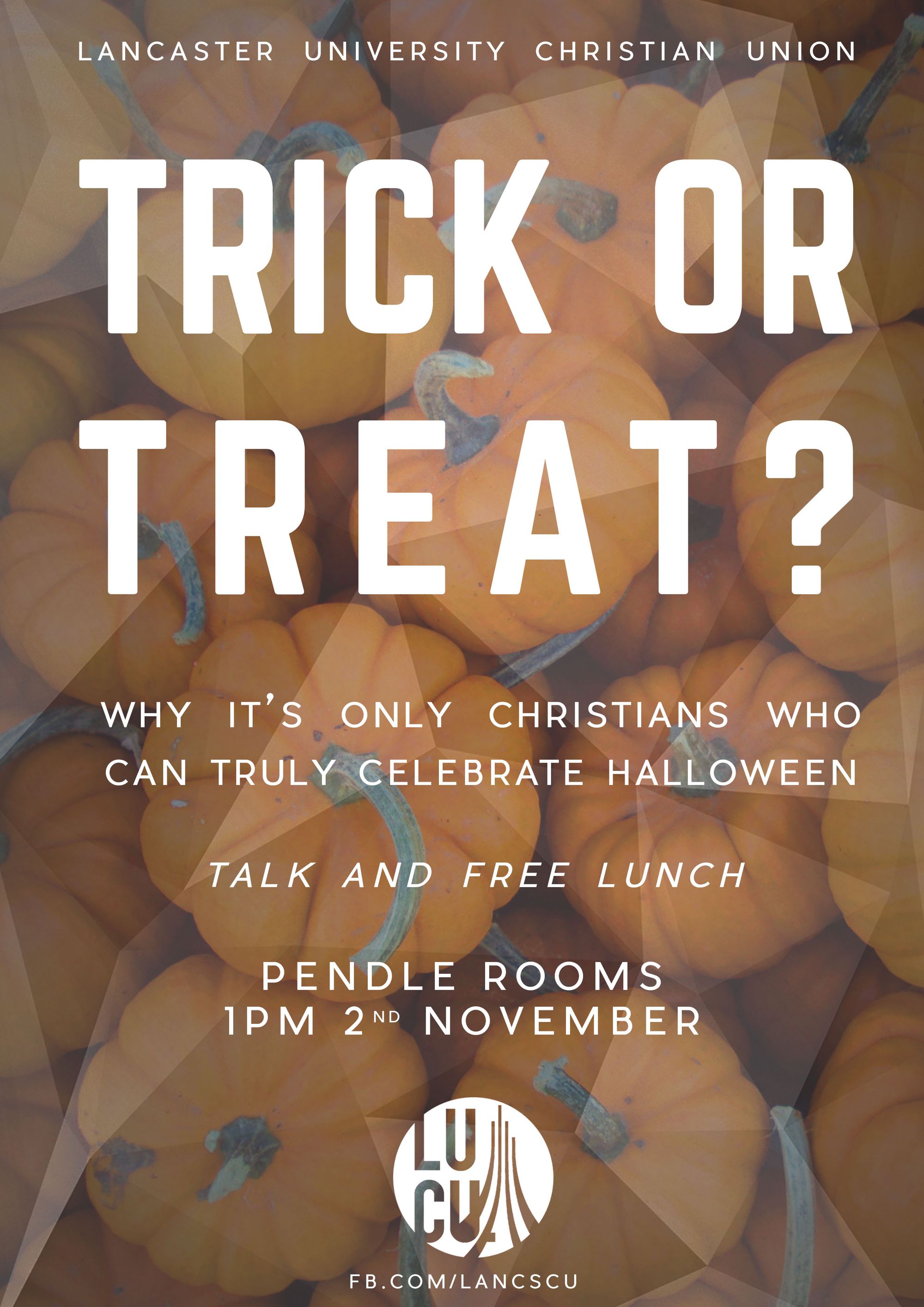Why Christians of all people should be celebrating on Halloween


Ok, so it’s a totally contentious title.
In fact, it’s probably contentious for at least two reasons!
Firstly, you might well be thinking something along the lines of ‘typical arrogant Christians suggesting they have something to celebrate more than anyone else’. And also: as if. As if Christians know how to party any more than the rest of us! I mean, that’s a bit like being told by Dot Cotton that you don’t know how to have a good time…
Or, secondly, if you’d identify yourself as a Christian, you might be concerned that any talk of celebrating Halloween is actually making light of evil, when really we should be fleeing from it.
So hear me out.
Or rather, hear someone else out! Take three minutes to listen Glen Scrivener explaining why Halloween actually has Christian roots:
(By the way, if you want an extended interview with Glen, listen to him talking with Dan Hames here.)
Of course, not everyone agrees. J John has put forward six reasons why Halloween is far from harmless.
But the whole point of Glen’s argument isn’t to suggest that Halloween is ‘harmless’. Rather it’s to realise that someone has defeated the very real and deadly realities of evil. And that’s what people were originally celebrating at Halloween. Evil is not harmless, but for those trusting in Christ it has been disarmed. Dressing up little kids in comical red devil costumes and white sheets was a way of saying that because of Jesus the devil is not someone to fear. And death is no longer the final enemy. Because Jesus rose, there is hope beyond the grave.
Now that’s all very well. But of course, just because Halloween has Christian origins doesn’t mean that those roots are going to be visible today.
And interestingly it seems like there’s been a cultural shift in Halloween over the past few years. Comedy writer James Cary has observed how our October 31st costumes and parties have transitioned from being ‘a bit spooky’ to being a full-on “orgy of blood-spattered nonsense”. This year we’ve had websites selling Kim Kardashian knifepoint-robbery costumes and students dressing up as victims of the Alton Towers rollercoaster crash. In fact, you’d be hard-pressed to find a witch or a ghost at most adult Halloween parties these days. So what’s going on?
A couple of thoughts, for what they’re worth.
1. Is there a sense in which our present-day culture feels its version of Halloween has to match its supposed naturalistic worldview? And so, given we often seem to pride ourselves on having done away with God, it would be odd if the way we did Halloween didn’t match up. Therefore we do away with the nightmares of a world where there could be the possibility of spiritual forces and exchange them for the nightmares still permitted within a secularist set-up: human tragedy and bloody gore and front-page horror.
2. And yet it seems like we still can’t get away from a fascination with our own mortality. In fact, in a culture that often pushes death underneath the carpet and pretends like we’re immortal, Halloween has become an occasion where we subtly bring death back out into the open again. But the only way we can handle doing this is to make light of it, turning terror and disaster and pain into the themes of our elaborate costumes. When someone else’s mortality is publicly exposed in such a bloody and brutal way, all too often we respond with a peculiar desire to see more and know more. We become voyeurs of death. Halloween is surely becoming an example of that? (I wrote a bit more on this after the 2014 Boeing 777 plane crash over Ukraine in 2014: MH17: Is our culture of immortality breeding voyeurs of death?)
So what do we do? How do we engage with Halloween when Jesus’ promise of life beyond death and the defeat of the devil aren’t exactly at the forefront of people’s minds?
Isn’t this where we have an opportunity to engage but to ‘do it differently’ and, where appropriate, unpack the unique hope of Jesus as we do so? For a start, let’s be known for our radical generosity. And on one of the few times of the year when people actually visit their neighbours’ homes (or at least the front-door steps), shouldn’t we be known for our friendliness and care and commitment to our communities.
Of course, most people would just say Halloween is a chance to have a bit of fun. After all, supermarkets do it. Schools do it. Everyone does it. And loads of people seem to have a great time in the process. But let’s not be ashamed of believing we have something to offer that means there’s something to truly celebrate in the face of death, our own mortality, and the painful existence of evil in our world.
By the way, if you haven’t seen Glen’s Trick or Treat? video yet – this is the more poetical and visual version of the explanation above!
And for a bunch of links aimed at engaging with Halloween as Christian families (e.g. pumpkin carving designs), check out these posts at The Vicar’s Wife blog. You might also be interested to read Krisk Kandiah on why he changed his mind on Halloween (although, to be fair, that was in 2014, so he may have changed again!). Glen S has also got a bunch more links here if you want to read a few other perspectives.